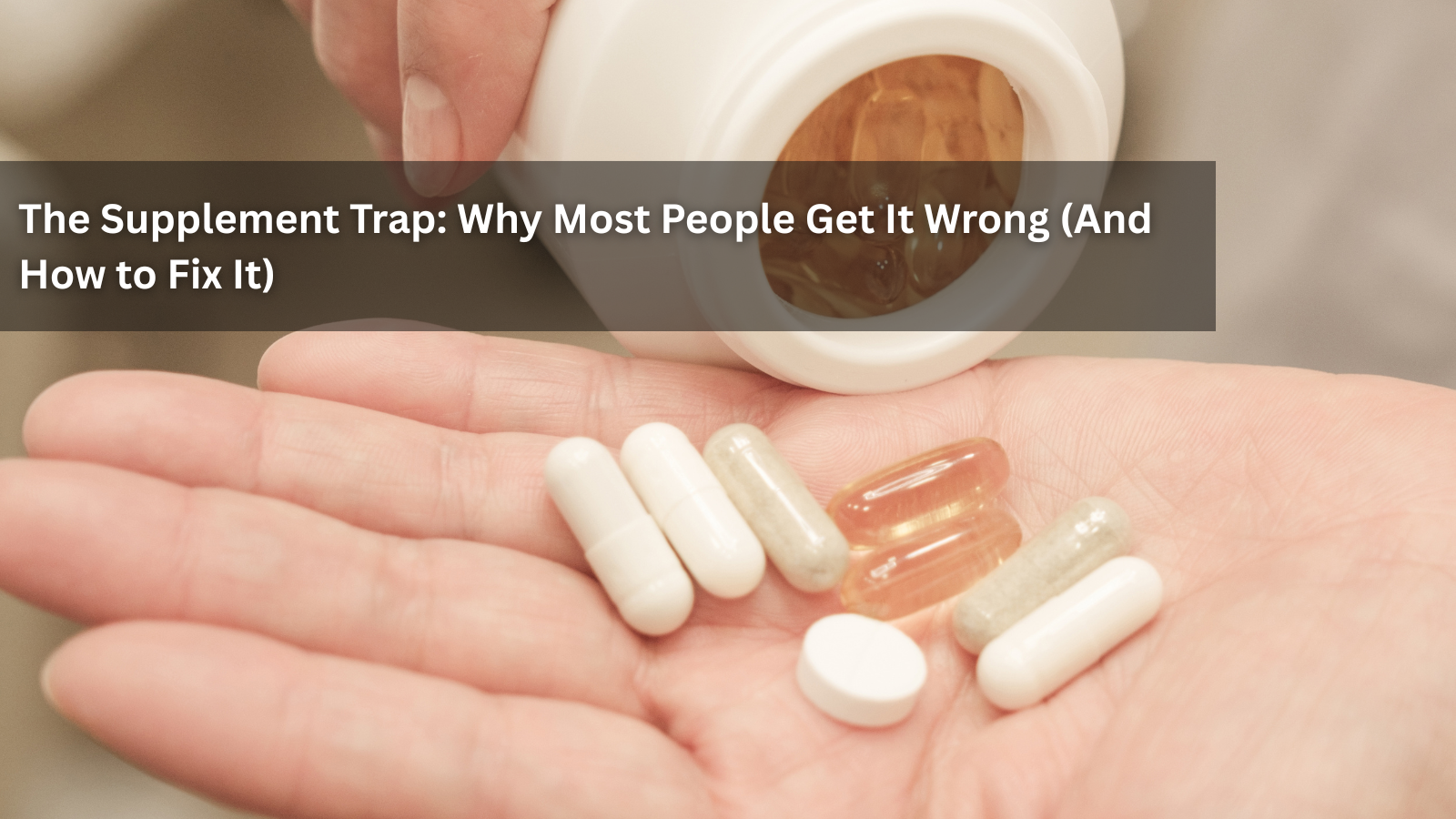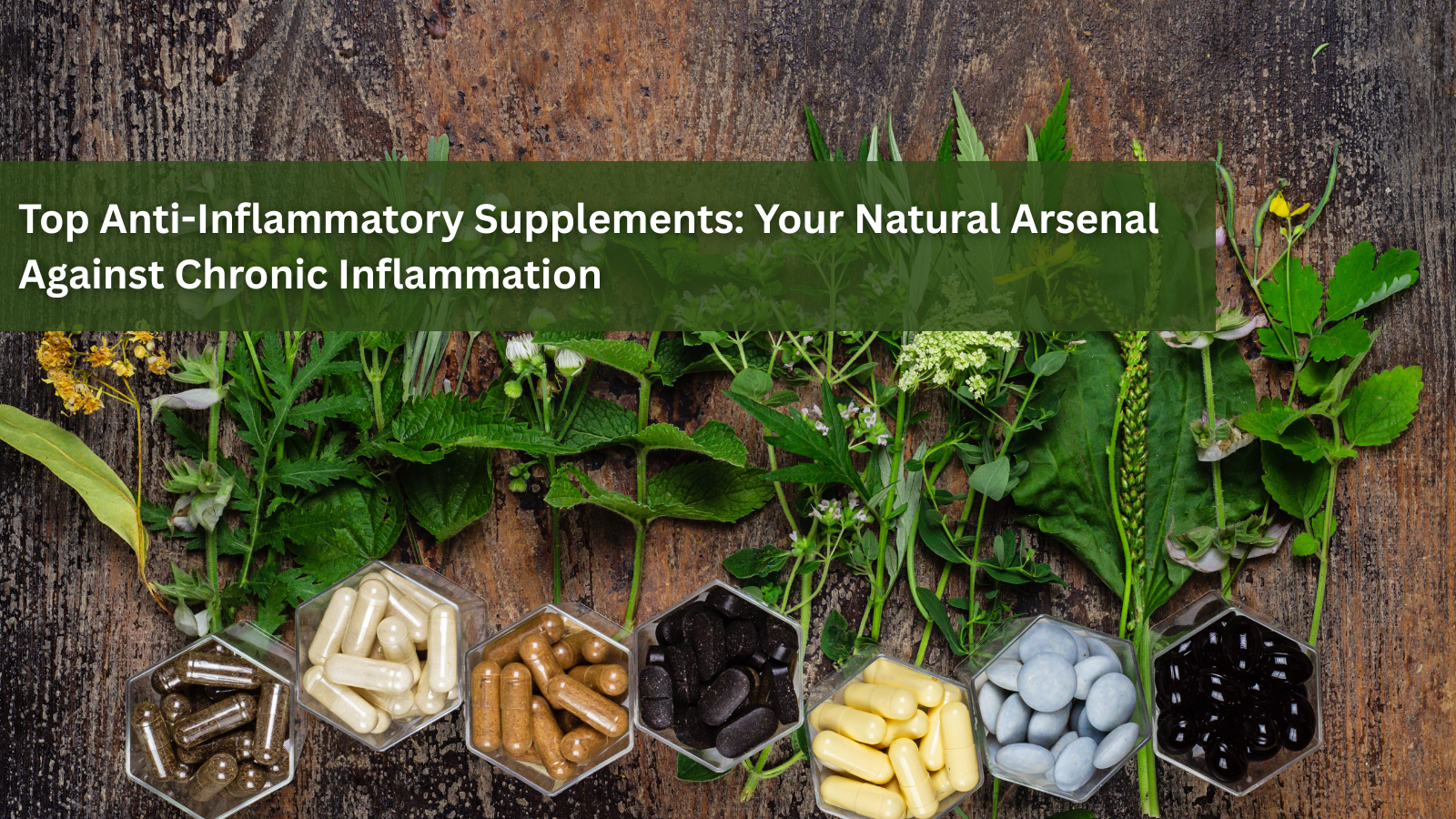Navigating Menopause Naturally: The Best Supplements and Lifestyle Changes

Menopause is a natural biological transition that marks the end of a woman’s reproductive years, typically occurring between ages 45 and 55. For many, this stage brings with it a cascade of physical and emotional symptoms — from hot flashes and night sweats to mood changes, sleep disturbances, and bone density loss.
While hormone replacement therapy (HRT) remains a standard treatment, not all women can or want to pursue it. Fortunately, a growing body of scientific research supports the use of natural supplements and lifestyle strategies to ease menopausal symptoms safely and effectively.
Below, we’ll explore some of the best evidence-backed supplements for menopause and offer tips on lifestyle changes that can help you thrive during this powerful life transition.
Top Evidence-Based Supplements for Menopause Relief
1. Magnesium
Magnesium plays a crucial role in managing menopause-related health issues, particularly due to its involvement in various physiological processes. Deficiency in magnesium is prevalent among women, especially during menopause, and is linked to several conditions such as osteoporosis and climacteric syndrome. The following sections outline the significance of magnesium in menopause.
- Magnesium deficiency exacerbates symptoms of climacteric syndrome, including mood swings and physical discomfort (Prilepskaya et al., 2018).
- Supplementation has been shown to improve health outcomes and quality of life for menopausal women (Хашукоева et al., 2019).
- Postmenopausal women often experience osteoporosis, characterized by lower magnesium levels, which can contribute to bone loss (Kumar et al., 2015).
- Adequate magnesium intake is essential for bone formation and may mitigate the adverse effects of osteoporosis(Kumar et al., 2015).
- Magnesium is vital for over 300 enzymatic reactions, influencing cardiovascular health, glucose regulation, and neuromuscular function (Makatsariya et al., 2024).
- Many women are magnesium deficient due to inadequate dietary intake, which can lead to various health issues during menopause (Tonick & Muneyyirci-Delale, 2016).
Vitamin D & Calcium
As estrogen levels drop, bone density decreases, increasing the risk of osteoporosis. Adequate vitamin D and calcium intake are essential to support skeletal health during and after menopause.
According to the Journal of Clinical Endocrinology & Metabolism (2011), combined calcium and vitamin D supplementation reduces bone turnover and improves bone mineral density in postmenopausal women [3].
How it helps:
- Strengthens bones
- Reduces risk of fractures
- Supports immune and cardiovascular health
Dosage:
- Vitamin D: 800–2000 IU/day
- Calcium: 1000–1200 mg/day (diet + supplements)
Omega-3 Fatty Acids
Found in fatty fish and fish oil supplements, omega-3s have anti-inflammatory and mood-stabilizing effects.
A 2018 randomized controlled trial in The North American Menopause Society's journal found that omega-3 supplementation significantly improved mood and reduced depression in menopausal women [4].
How it helps:
- Alleviates mood swings and irritability
- Supports cardiovascular health
- May improve skin dryness
Dosage: 1000–2000 mg EPA + DHA daily
Maca Root (Lepidium meyenii)
Grown in the Andes, maca root has been traditionally used to balance hormones and boost energy. Emerging evidence suggests it may support libido and reduce menopausal discomfort.
A review published in Maturitas (2006) showed that maca can help reduce symptoms such as anxiety, depression, and sexual dysfunction in postmenopausal women [5].
How it helps:
- Increases libido and energy
- Reduces fatigue and mood symptoms
- May help with hormone balance
Dosage: 1.5–3 grams daily of powdered maca root
Black Cohosh (Cimicifuga racemosa)

Black cohosh has been one of the most widely used herbal remedies for menopause symptoms, particularly hot flashes and night sweats.
A systematic review published in Menopause (2012) found that black cohosh was significantly more effective than placebo in reducing vasomotor symptoms in menopausal women [1].
How it helps:
- Alleviates hot flashes
- May improve mood swings and sleep
- Acts on serotonin receptors, not estrogen
Dosage: 20–40 mg of extract daily (standardized to 1 mg triterpene glycosides)
Red Clover (Trifolium pratense)
Red clover contains isoflavones, plant-based compounds that mimic estrogen in the body. These phytoestrogens may help balance hormone levels as endogenous estrogen declines during menopause.
A 2015 double-blind study in PLOS ONE reported that red clover extract significantly reduced hot flashes and improved sleep and libido in perimenopausal women [2].
How it helps:
- Eases hot flashes and night sweats
- Supports bone health
- Mild mood improvement
Dosage: 40–80 mg isoflavones daily
Bonus Mentions (Emerging or Complementary)
- Ashwagandha: for stress, sleep, and anxiety
- Evening Primrose Oil: for hot flashes and breast tenderness (mixed evidence)
- Probiotics: support gut health and hormone metabolism
Lifestyle Changes to Manage Menopause Symptoms
While supplements can provide valuable support, lifestyle plays a critical role in managing menopause symptoms and maintaining long-term health.
1. Exercise Regularly
Physical activity can improve mood, sleep, weight control, and bone health. Aim for:
- 150 minutes/week of moderate aerobic activity (e.g., brisk walking, swimming)
- Strength training 2x/week for bone density
Tip: Weight-bearing exercises like yoga and dancing are especially effective for preventing osteoporosis.
2. Eat a Hormone-Friendly Diet
Focus on:
- Whole, fiber-rich foods (vegetables, legumes, whole grains)
- Healthy fats (olive oil, nuts, avocado)
- Fermented foods (yogurt, kimchi, kefir) for gut and hormone health
Limit:
- Refined sugar
- Alcohol
- Ultra-processed foods (which can trigger inflammation)
Tip: Consider incorporating more phytoestrogens from foods like soy, flaxseeds, and lentils.
3. Manage Stress
Chronic stress can worsen hot flashes, sleep disturbances, and hormone imbalances.
Try:
- Mindfulness meditation
- Breathing exercises
- Therapy or coaching
- Journaling and community support
Tip: Ashwagandha or Rhodiola supplements can help regulate cortisol levels.
4. Improve Sleep Hygiene
Poor sleep is one of the most common menopause complaints. Establish a bedtime routine:
- Avoid screens 1 hour before bed
- Keep the room cool and dark
- Limit caffeine and alcohol
Tip: Magnesium glycinate (200–400 mg) may promote deeper, restorative sleep.
5. Track Symptoms and Hormones
Keeping a journal or using a menopause tracking app can help identify patterns and triggers, and guide discussions with your healthcare provider.
Final Thoughts
Menopause is a significant transition — not just hormonally, but emotionally, physically, and spiritually. While it can bring challenges, it also opens up a powerful opportunity to reconnect with your body and optimize your health for the next phase of life.
Supplements like black cohosh, red clover, omega-3s, maca, and vitamin D, when combined with smart lifestyle changes, can help ease the path through menopause and help you feel vibrant, resilient, and empowered.
As always, consult a healthcare provider before starting any supplement regimen, especially if you are on medications or managing existing health conditions.
References
Makatsariya, A. D., Bitsadze, V., Solopova, A. G., Gromova, O. A., Korabelnikov, D., Blinov, D. V., Khizroeva, J., Makatsariya, N. A., Tretyakova, M. V., Akavova, S. A., & Ampilogova, D. M. (2024). Female magnesium deficiency and its management: review of current knowledge. Obstetrics, Gynecology and Reproduction. https://doi.org/10.17749/2313-7347/ob.gyn.rep.2024.512
Kumar, P., Sharma, R., Sharma, P., & Gupta, G. (2016). Role of magnesium in postmenopausal women with osteoporosis and osteopenia. Asian Journal of Pharmaceutical and Clinical Research, 9(1), 198–199.
Prilepskaya, V. N., Прилепская, В. Н., Mgeryan, A. N., Мгерян, А. Н., Mezhevitinova, E. A., & Межевитинова, Е. А. (2018). Climacteric syndrome and magnesium (literature review). 20(5), 6–8. https://doi.org/10.26442/2079-5696_2018.5.6-8
Tonick, S., & Muneyyirci-Delale, O. (2016). Magnesium in Women’s Health and Gynecology. Open Journal of Obstetrics and Gynecology, 6(5), 325–333. https://doi.org/10.4236/OJOG.2016.65041
Leach, M. J., & Moore, V. (2012). Black cohosh (Cimicifuga spp.) for menopausal symptoms. Menopause, 19(7), 740–748.
Hidalgo, L. A., Chedraui, P. A., et al. (2015). Effects of red clover isoflavones on menopausal symptoms. PLOS ONE, 10(1), e0115355.
Dawson-Hughes, B., et al. (2011). Calcium and vitamin D supplementation in postmenopausal women. JCEM, 96(8), 2405–2413.

October 23, 2025
An In-Depth Analysis of the Toxicity of Plastics and Their Leaching Effects: Chemicals, Endocrine Disruptors, and Environmental Impact
Plastics have become a ubiquitous part of our daily lives, from the packaging of food to the clothing we wear. Yet, increasing evidence suggests that certain plastics can leach harmful chemicals that pose significant risks to human healt...
Read more
October 23, 2025
The Supplement Trap: Why Most People Get It Wrong (And How to Fix It)
Walk into any pharmacy or health food store, and you'll be confronted with walls of colorful bottles promising better health, more energy, and improved vitality. Americans spend over $50 billion annually on dietary supplements, yet many...
Read more
October 23, 2025
Top Anti-Inflammatory Supplements: Your Natural Arsenal Against Chronic Inflammation
Chronic inflammation has become one of the most pressing health concerns of our time, silently contributing to conditions ranging from arthritis and diabetes to heart disease and neurodegenerative disorders. While pharmaceutical interve...
Read more




Leave a comment